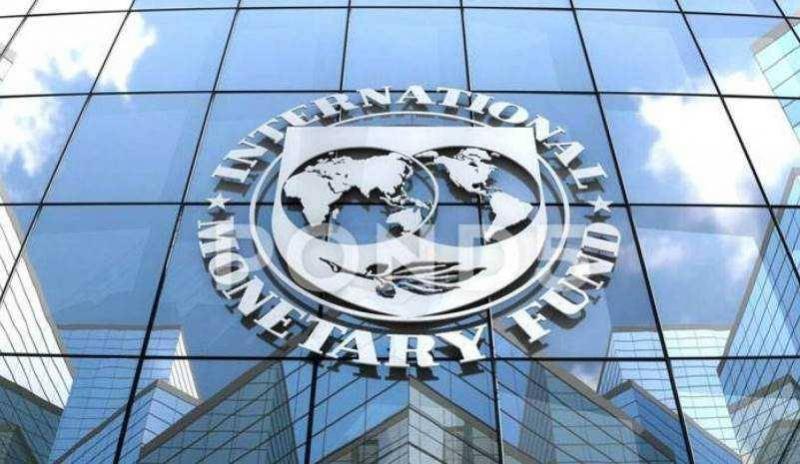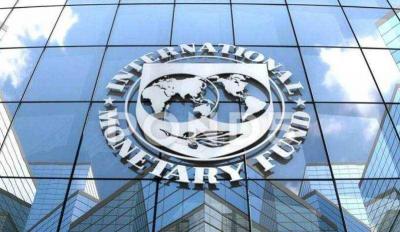The delegation of the International Monetary Fund (IMF) currently visiting Lebanon has not brought any new proposals, as it is convinced that the country has not made any progress towards financial reform. This raises the question: why does the delegation continue to visit Beirut if an agreement with the state seems out of reach?
With the return of the IMF delegation to Lebanon, discussions have resurfaced regarding the fate of deposits, the financial reform plan, the restoration of deposits, the trust in the financial system, and the negotiation process between Lebanon and the IMF. It is true that there has been no advancement in terms of financial reform since the delegation's last visit in September. However, this visit occurs against the backdrop of an ongoing conflict in the south, which has lasted for eight months and has further exacerbated economic and financial losses.
Monir Rashid, the former IMF expert and president of the Lebanese Economic Association, stated that the current IMF delegation visiting Lebanon has not introduced anything new. On the contrary, it insists on its position regarding the write-off of deposits, which includes restructuring banks by reducing their liabilities and cutting down assets through the write-off of deposits and conversion to "bail-in" assets or transforming deposits into Lebanese pounds at a lower exchange rate than the current market rate. He pointed out that this is the only official solution the IMF has promoted throughout the past year, which has remained unchanged.
Rashid explained that the IMF views Lebanon as being in a state of bankruptcy, considering that the banks' deposits with the central bank are a loss that the state cannot cover. If we assume these deposits are indeed a loss, this implies that Lebanon’s debt, which stands at €32 billion and approximately $70 billion in bank deposits at the central bank (totalling $100 billion in state debt), amounts to 500% of the country's gross domestic product.
He affirmed that IMF executive directors refuse to lend to any country with a debt-to-GDP ratio this high, stating that it is part of the fund's mandate to protect the shares of other countries. They believe that if they lend Lebanon $3 billion, this amount will be drawn from the shares of other countries, and it would be difficult for Lebanon to repay this amount without resorting to write-offs of deposits.
Rashid added that the solution proposed by the IMF has continued to be rejected within Lebanon, and the State Consultative Council has also previously rejected it by accepting a memo of dispute attached by some banks, confirming that deposits should not be written off.
In the same context, Speaker of the Parliament Nabih Berri renewed his objection to any agreement with the IMF that does not consider the interests of depositors, emphasizing that restoring confidence in the banking sector and the overall financial system in Lebanon requires ensuring the full restoration of deposits to their owners, no matter how long it takes.
In this regard, Rashid commented on the phrase "no matter how long it takes," stating, "This is what we fear. It is not possible to restore deposits after 100 years; rather, we must work on restoring them. Unfortunately, we have not yet begun to move in the right direction to restore deposits." He explained that for about the past two years, the IMF has not considered bank deposits at the central bank as part of state debt. At one point, state debt was estimated at $32 billion and 95 trillion Lebanese pounds, which, due to the currency collapse, equates to approximately $1.1 billion, totaling $33 billion according to the fund's assessment. However, with the proposed plan, it was considered as $100 billion, including the Central Bank’s debt, which is a point of contention with the IMF, as they do not view the Central Bank's losses as state debt, but rather as the state owing for the Central Bank's losses.
From this standpoint, Rashid affirmed that the only solution to this predicament lies in rescheduling state debts and improving the financial situation, allowing the country to then service its debts. He insisted that the focus should be on reaching a stage where Lebanon can pay off the state's and the Central Bank's debts, rather than resorting to write-offs of deposits. He asserted that writing off deposits is not a solution, just like fully restoring deposits is not feasible, since there is no banking sector in the world capable of restoring deposits in full.
Rashid emphasized that it will not be possible to reach a definitive solution with the IMF, urging the fund to clearly announce that Lebanon has no capability to borrow $3 billion, thus rendering the delegation's periodic visits to Lebanon pointless as long as no new proposals are being offered from either side. He confirmed that there is no intention from the IMF’s executive board to lend to Lebanon, as the country lacks the technical eligibility to repay.
In response to a question, Rashid said that the only solution the IMF proposes is writing off deposits to service the loan, a solution he deems impractical, stressing that even having deposits remaining, theoretically in banks for years, is far better than writing them off, as writing off deposits with the central bank would mean writing off $70 billion of depositor funds. Once this solution is adopted, who among depositors (whether Lebanese or foreign) would ever regain confidence in Lebanese banks?
Rashid concluded by asserting that it is not true that Lebanon has no recourse but to agree with the IMF. In economics, there are multiple solutions rather than just one. Initiating actual reforms should suffice to restore confidence, unlike writing off deposits, which would deter investors from coming to Lebanon for years, even if we were to finalize an agreement with the IMF, according to "Al-Jomhouria."




